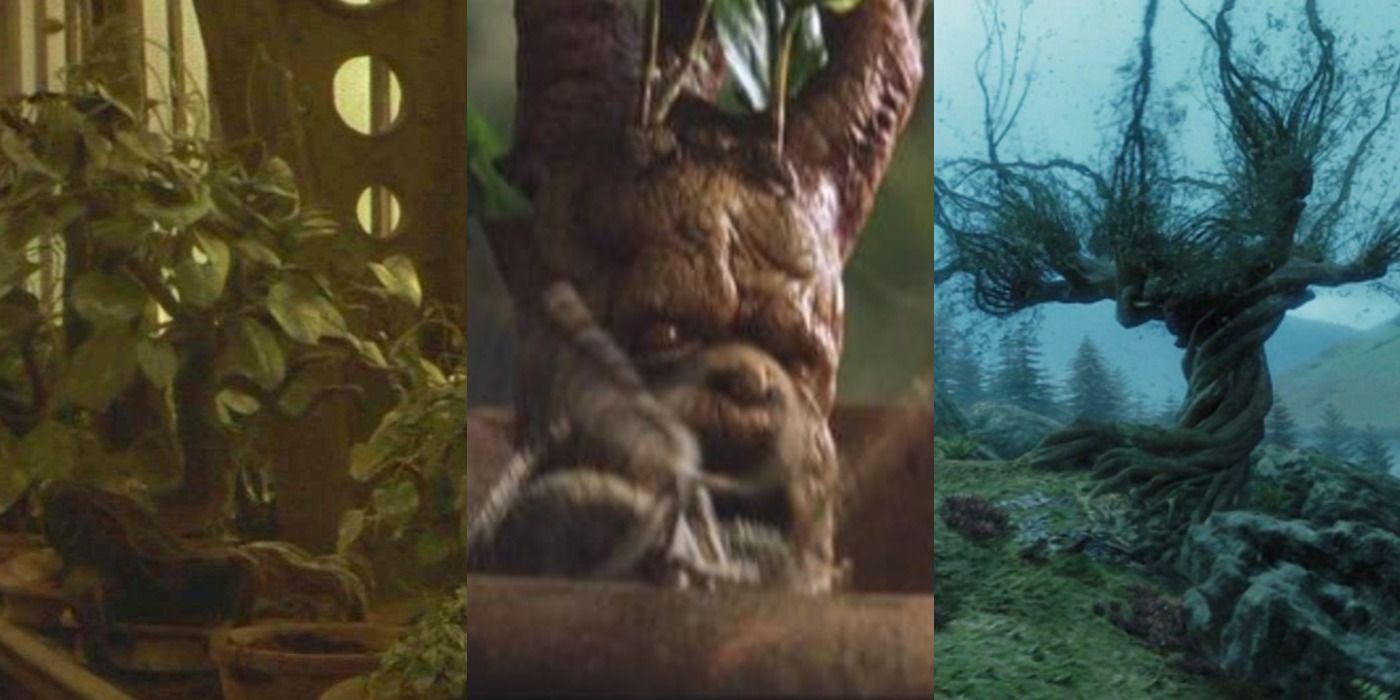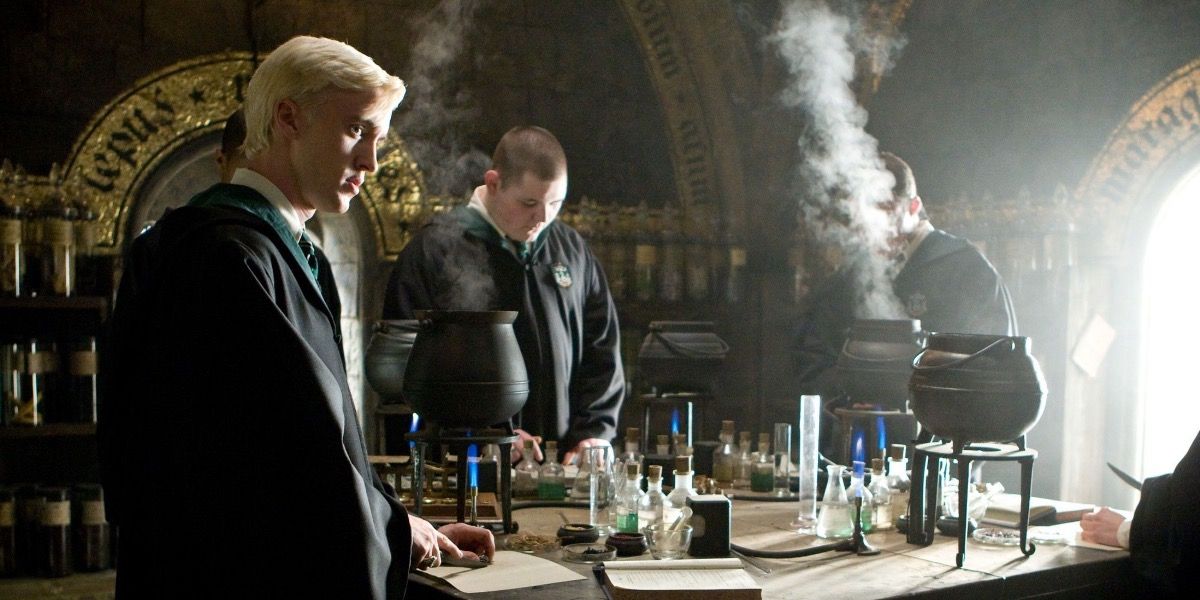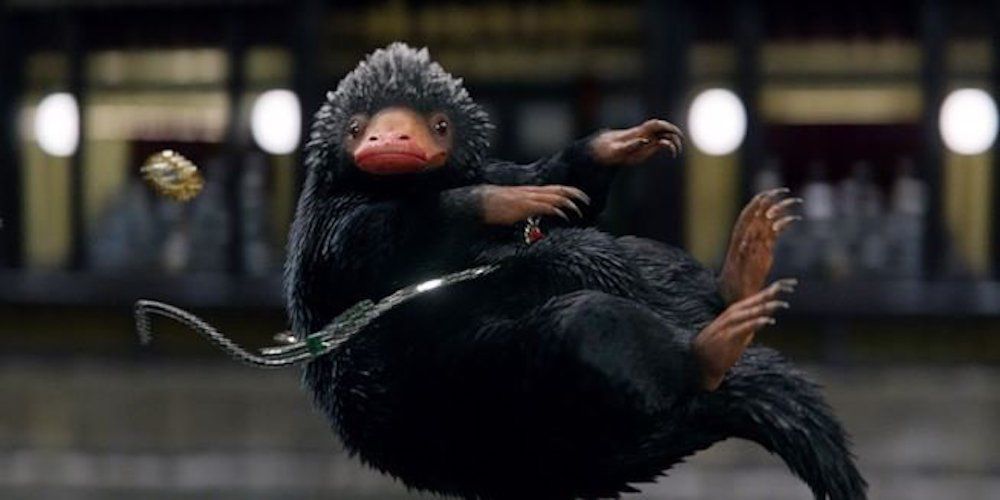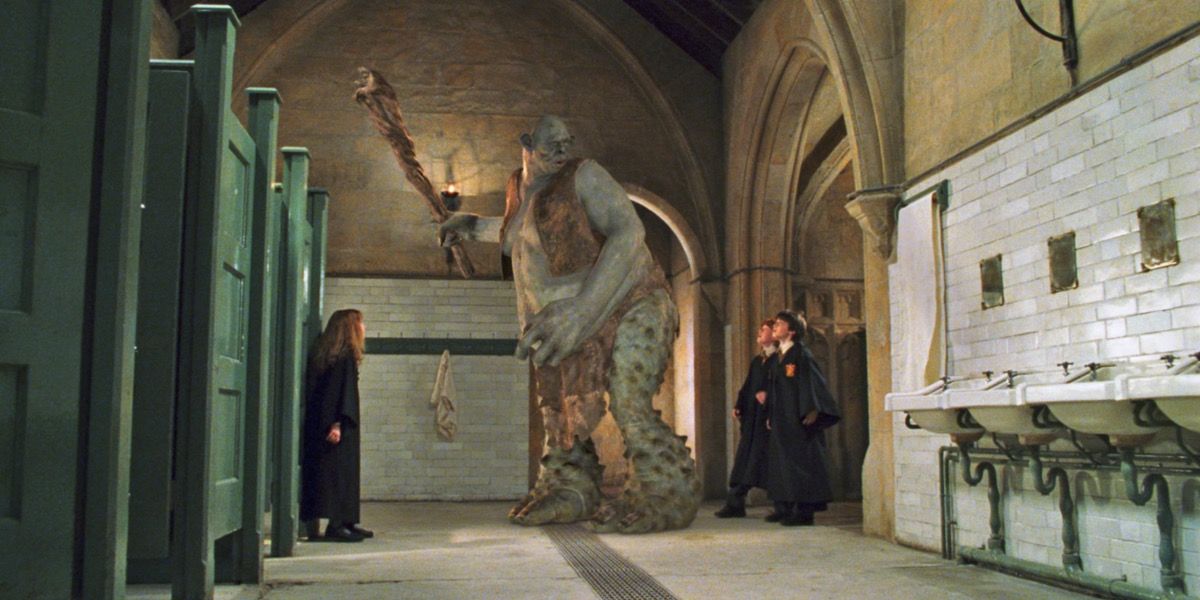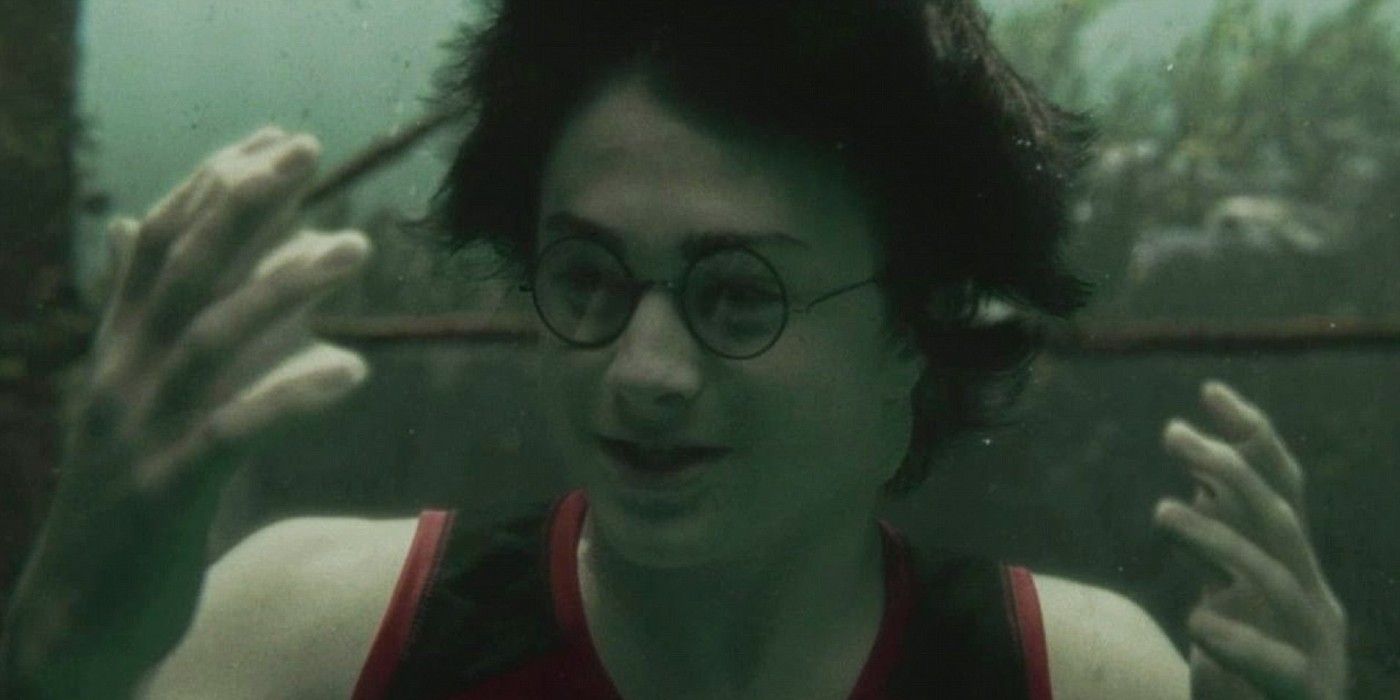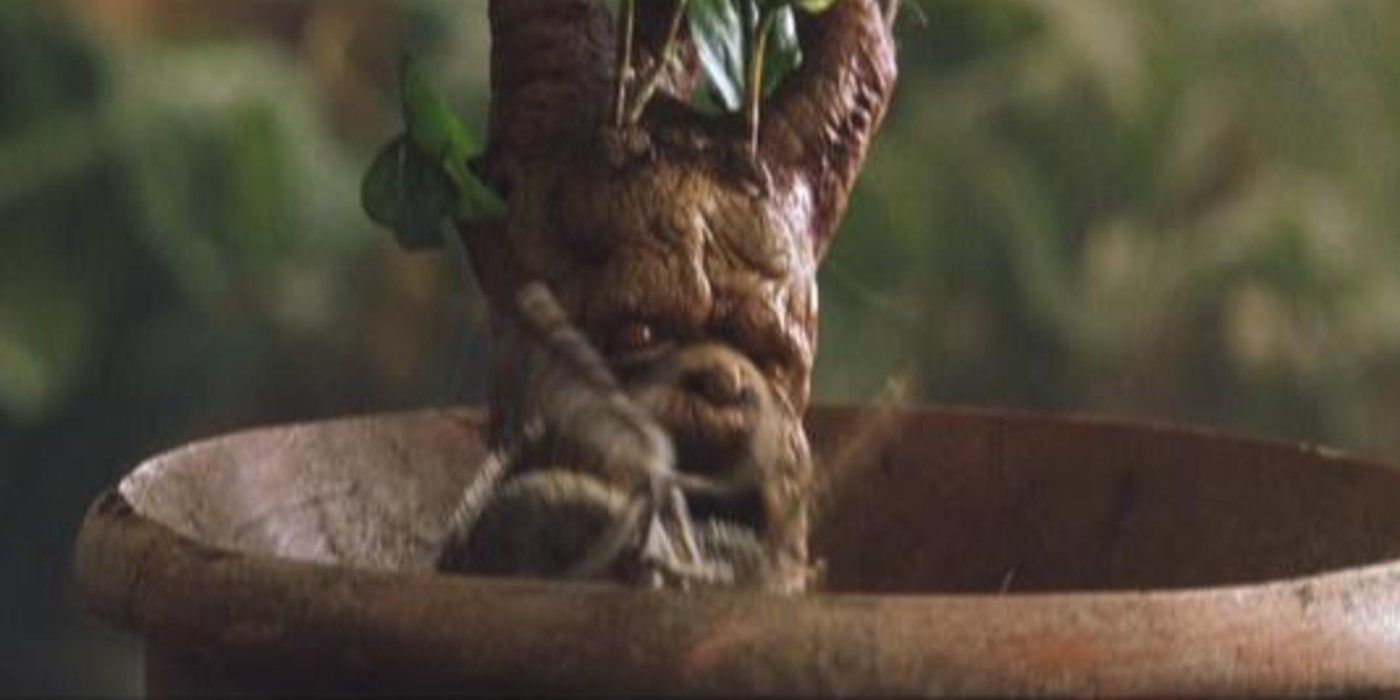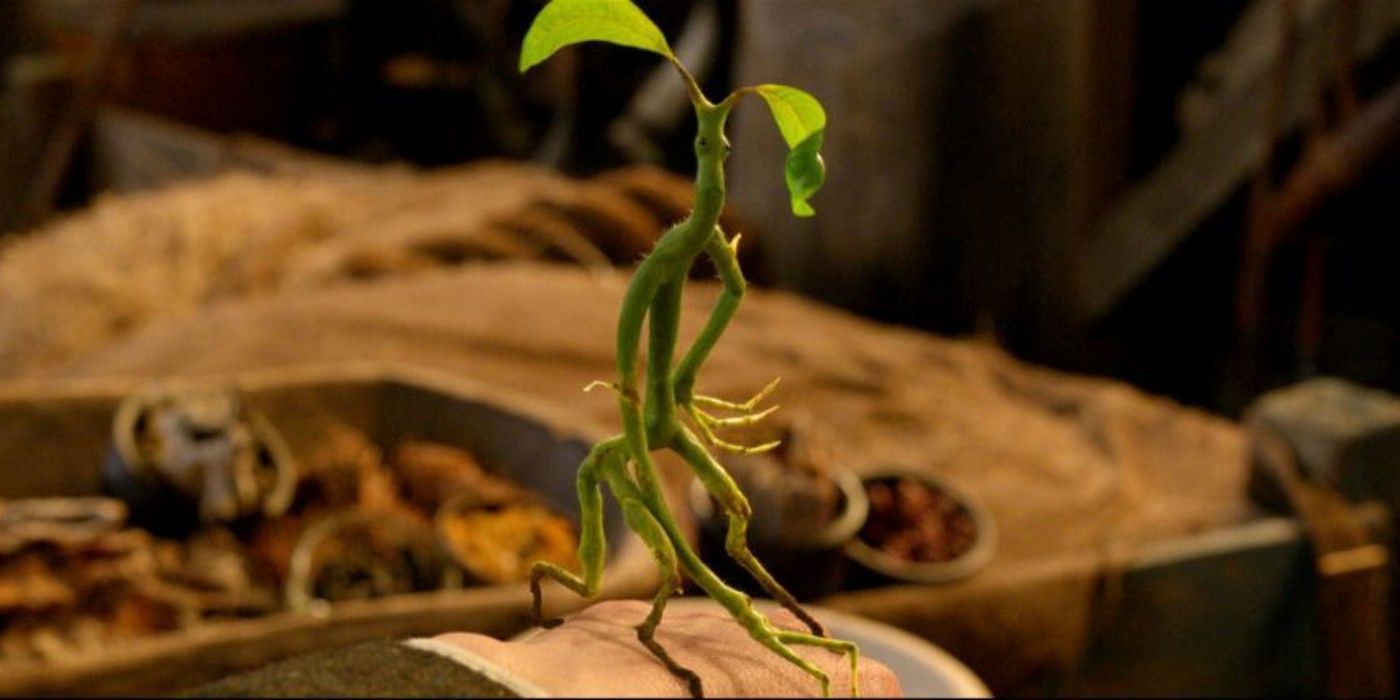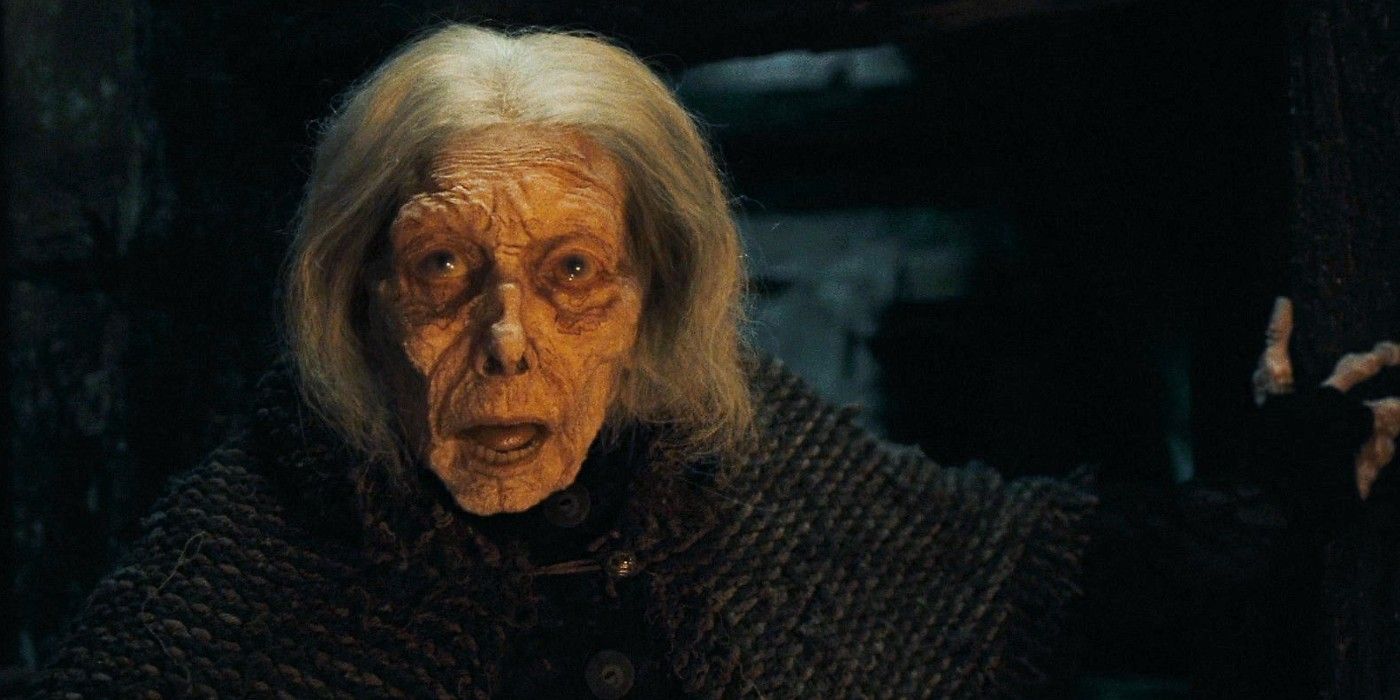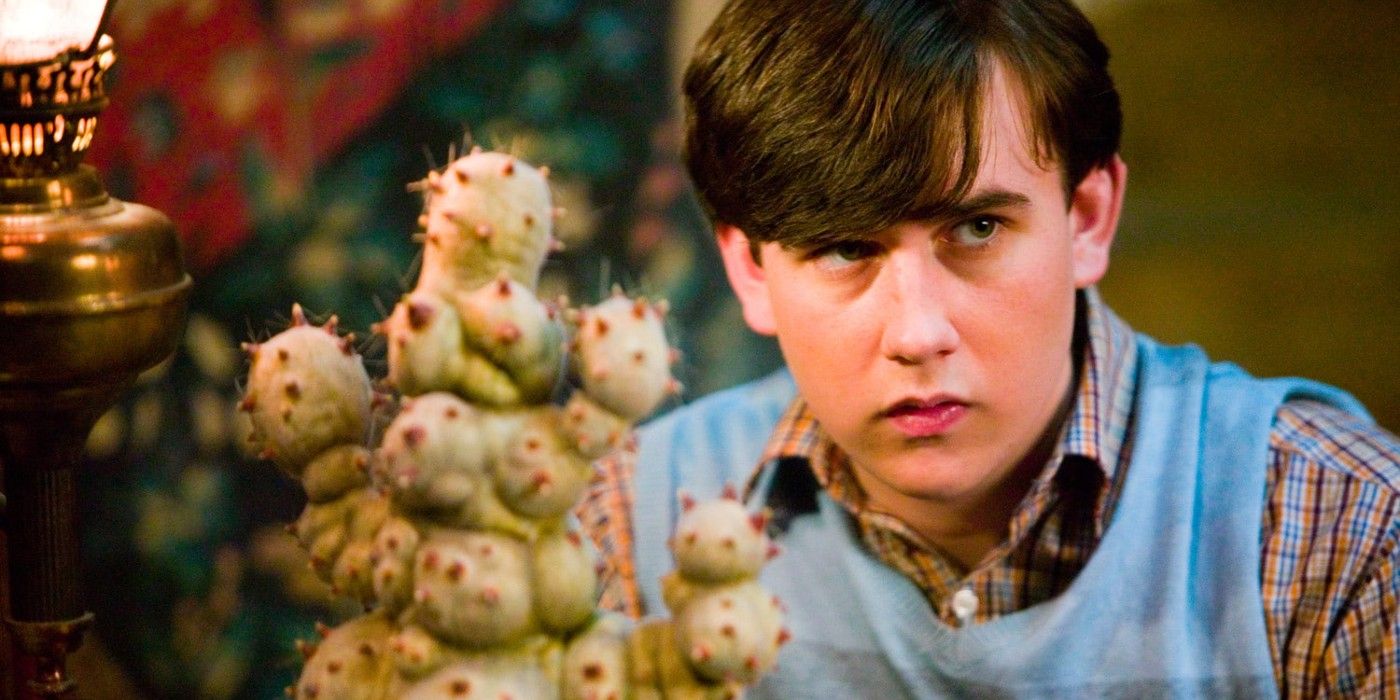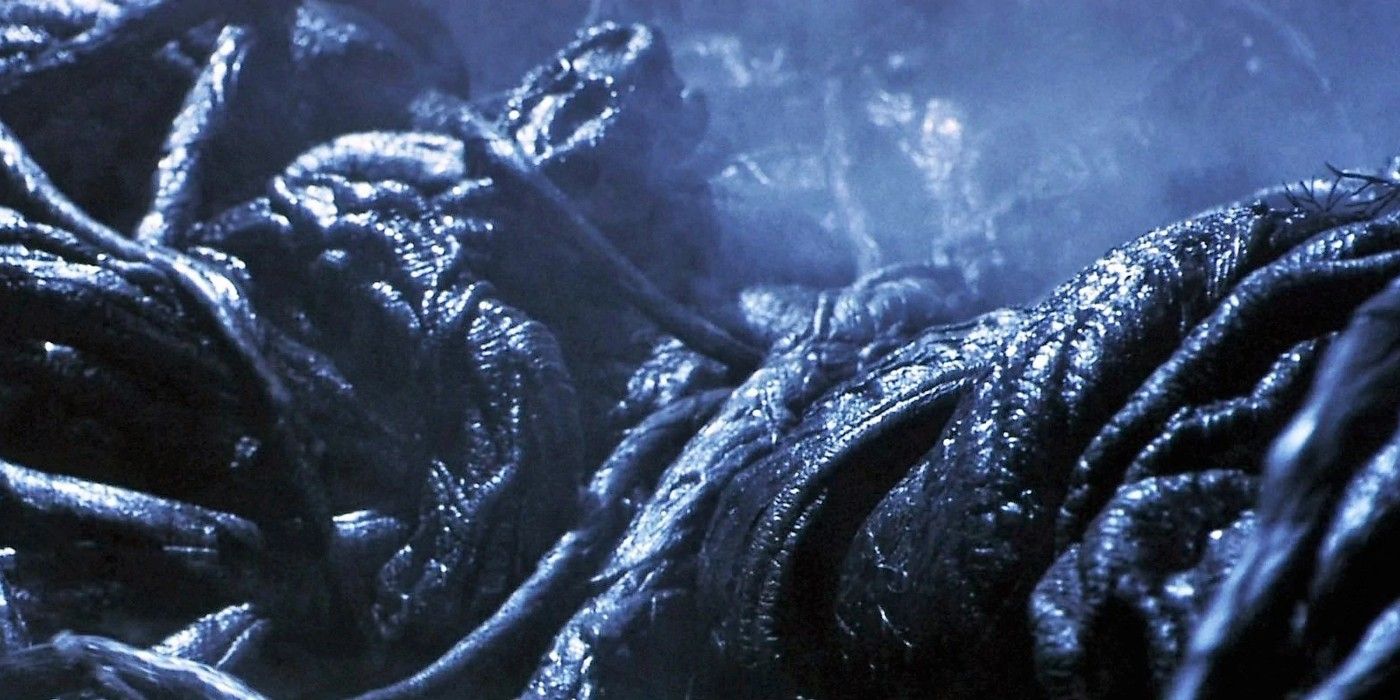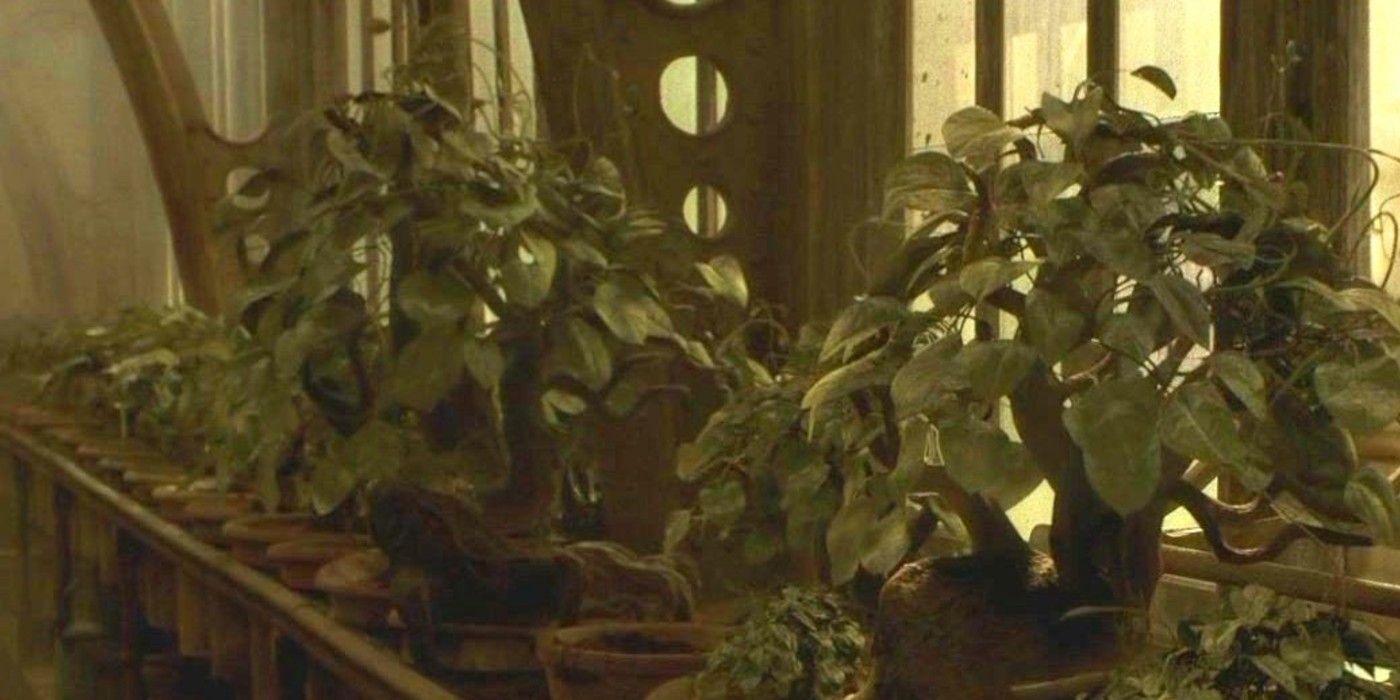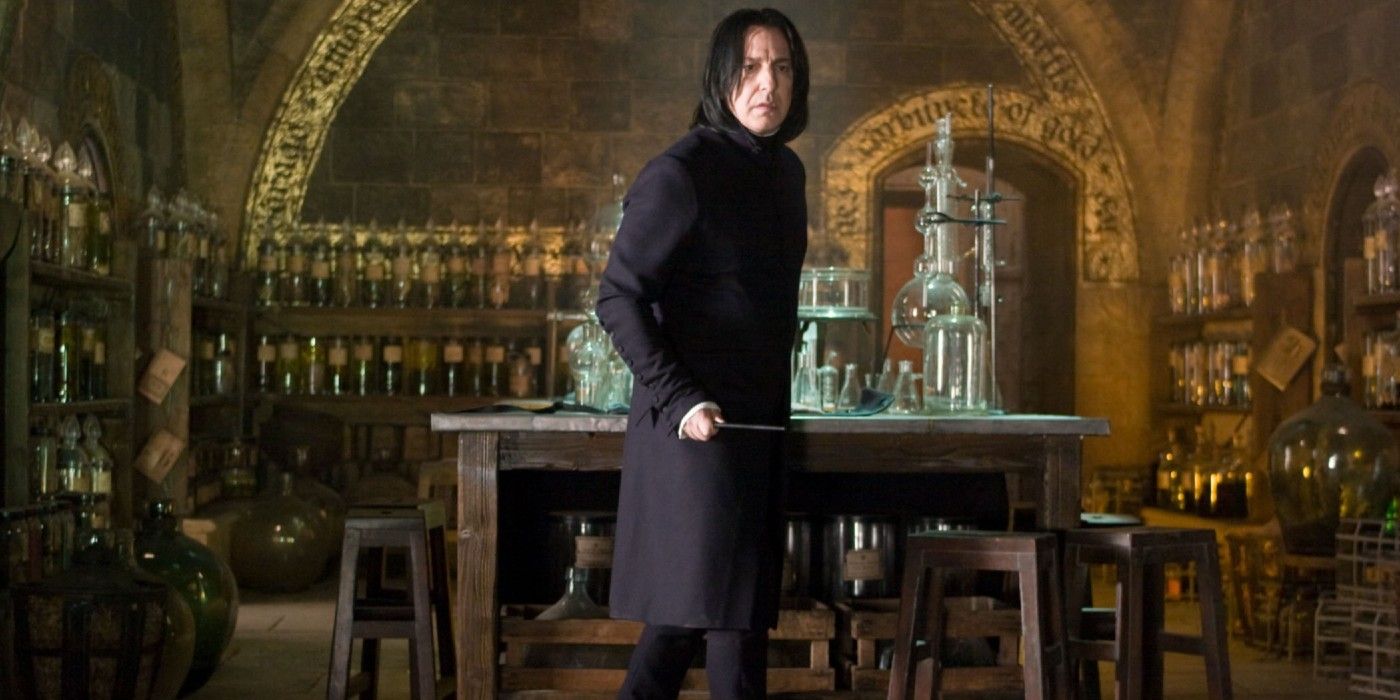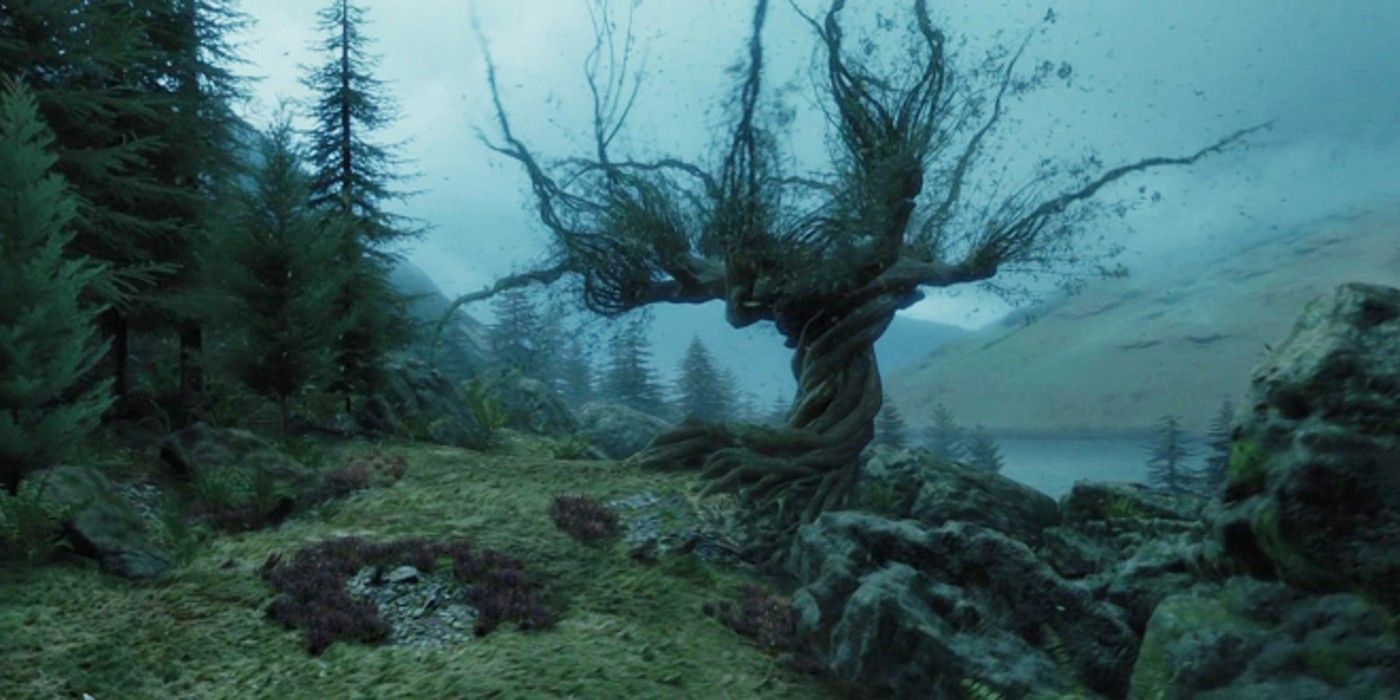The Harry Potter universe has a wide variety of fauna and flora. While the magical creatures of the Wizarding World have been heavily featured throughout the various films and books, the plants of the series barely get a mention, outside of Herbology lessons of course.
While there are plenty of artifacts, potions, and books, alongside other secrets within Hogwarts, there's also a huge set of greenhouses that contain some of the rarest and most important plants that the students could ever need. Some of these plants are incredibly useful, with many being utilized in a variety of unique and creative ways.
Updated October 26th, 2021 by George Chrysostomou: There are so many useful plants in the world of Harry Potter that more have to be highlighted because of their importance to the Wizarding community. They might be very good for creating potions, great for healing, or perhaps even perfect for helping to feed and look after magical creatures.
Wormwood
Wormwood is actually one of the most commonly used ingredients in potions and something that every master of the art should have in their storage. The Draught of Living Death, Elixir to Induce Euphoria, and the Shrinking Solution all used this vital ingredient!
It's a plant that Muggles are familiar with as well within their own medicines and healing processes, but wizards have managed to unlock its true gifts. Interestingly, the plant often leaves a bitter aftertaste if used within a consumable potion; sometimes the mixture is actually sweetened afterward.
Niffler's Fancy
Although the name Niffler is one that audiences associate with the mysterious magical creature, a Niffler's Fancy actually draws its name from the animal. The leaves of the plant actually shine, meaning Nifflers are drawn towards them.
The copper-like plant is very difficult to come by and is therefore slightly pricier and not used within potion brewing. Instead, in the earlier days of society the plant was used as a form of currency; an unusual use of the natural resource.
Puffapod
A Puffapod is a very delicate plant that's known for its bright purples and pinks. As soon as it touches something it flowers in a beautiful display. Trolls actually hate the plant because it's likely to make them sneeze or cause a runny nose!
It's the spores of the plant that can cause this and have been known to ignite dizziness amongst those who have inhaled the substance. They are used in potion-making because of these effects, but are also great for warding off the dangerous beasts!
Squill
Another incredibly bright plant, a Squill has visually stunning flowers which are sure to catch the eye of any admirer of the environment. But they have been used in potion-making for much longer than they have been used as a decorative display.
Squill might be used by Muggles in their medicines, but its main claim to fame in the Wizarding World is that it is used in the creation of Felix Felicis. Liquid Luck as its known is one of the most powerful potions in the world and Squill is, therefore, such a vital plant.
Wolfsbane
Wolfsbane is such a useful substance that a potion has actually been named after it. The plant is vital in the creation of the substance, which can't actually be curated by any werewolves because it has been known to impact their transformative processes.
Once again it's quite a mundane Muggle plant normally, with magical properties that wizards and witches have drawn out of it. No cabinet is complete without a stockpile of Wolfsbane or Aconite as it is sometimes known. Interestingly, the species of plant is largely toxic to most species!
Gillyweed
Harry's stint in the Triwizard Tournament hit a number of problems when one of the challenges featured took place below the depths of the Black Lake. The location was especially difficult to operate in without any kind of breathing equipment.
While various charms and even a few complex potions could have done the trick, Neville Longbottom managed to find the incredibly useful Gillyweed, which once eaten allowed Harry to breathe underwater like a fish! The plant allows whoever uses it to grow gills and even webbed hands and feet.
Mandrake
The Mandrake was heavily featured during Harry's second year, thanks to its restorative properties when treating students that had been sent into a state of shock, after encountering the Basilisk.
While its scream is almost deafening and can cause some people to collapse, the roots of these nasty little creatures are especially useful in brewing various medical remedies. They are a pain to re-pot but definitely useful to keep around.
Wiggentree
A Wiggentree may be familiar with Harry Potter fans thanks to its link to Bowtruckles like Picket. These creatures protect the magical plant, stopping it from coming to harm.
Anyone who can touch the branches of a Wiggentree will actually be protected from darkness. But, because of its level of power, the Bowtruckles will defend it at all costs.
Dittany
Dittany is a small, unassuming herb-like plant with impressive restorative abilities. It is incredibly useful when it comes to trying to heal wizards and witches from severe injuries, especially ones that might even include some form of poison.
When Harry was attacked by Nagini in Godric's Hollow, Hermione used dittany in order to combat the severe condition that Harry was actually in. It's a plant that everyone should keep on them for emergencies.
Mimbulus Mimbletonia
Neville Longbottom has always had a fascination for plants, even becoming a Herbology teacher eventually. It's no surprise therefore that he picked out the Mimbulus Mimbletonia, to act as a sort of pet.
The cactus-type plant is very useful when it comes to defense. It actually has boils that burst, acting as an interesting mechanism to ward off prey. It has been used in a defense capacity but there's clearly more to discover about this rare plant.
Devil's Snare
Devil's Snare was used in Harry's first year in order to protect the sorcerer's stone. It's an impressive set of roots, but one that can be seriously deadly is the wizard or witch does not know how to release themselves from this trap.
Devil's Snare hates sunlight, so asides from being able to relax and escape the vines, the most likely option is to cast a light-based spell that can kill off these incredibly dangerous roots. The rare and aggressive plant is one that is still studied to discover its many other uses.
Venomous Tentacula
The Venomous Tentacula are not only useful for research in areas such as potions but are excellent to use when defending something. In fact, these vicious plants were actually used during the Battle of Hogwarts.
They not only have venus fly trap heads but also have vines that can lash onto a victim. These are usually used to grab their prey, but have no problem also attacking any human that comes too close!
Moly
The Moly is a plant that has also come up many times in potions, with even Snape pointing to its usefulness. It's actually an ingredient that has been used time and time again.
Its most notable use is in the Wiggenweld potion which can be a useful antidote for the Sleeping Draught and the Draught of the Living Death; both of which are very dangerous in the wrong hands.
Alihotsy
Unfortunately for some, Alihotsy can actually mean death if used improperly. The small and unassuming plant manages to create an extremely strange sensation in whoever touches it.
It can actually cause uncontrollable laughter, so bad that a former Minister Magic actually died thanks to poorly flavored fudge, featuring this peculiar plant. It could be used to poison enemies perhaps, or even be used in small doses to help with mental health.
Whomping Willow
The Whomping Willow has been a part of the Hogwarts landscape for generations. Even the most talented of Herbology teachers in Harry Potter would struggle to fully tame this wicked plant.
Harry and Ron have had a run-in with the tree in the past, with the large plant having a mind of its own. Its branches can actually swing around as if the tree has a countless number of thick arms! It's very useful for being used for defense once again, blocking the path to the Shrieking Shack.

